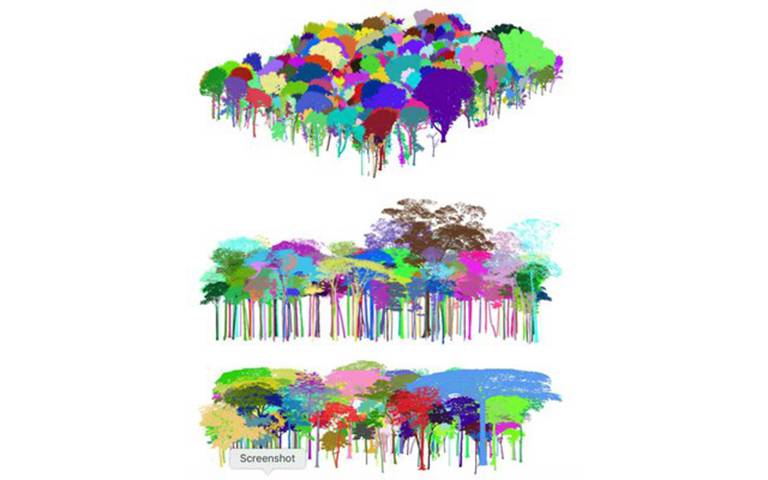Using Earth Observation to study the Carbon Cycle
6 August 2019
UCL Geographers contribute to international workshop

New opportunities and challenges in measuring the biomass of forests from space is the theme of a special issue of Surveys in Geophysics (Vol. 40, Issue 4), with various contributions from UCL Geography researchers, including Professors Mat Disney and Simon Lewis.
The volume arises from a Workshop on Space-Based Measurement of Forest Properties for Carbon Cycle Research, held at the International Space Science Institute (ISSI) in Bern, Switzerland, in November 2017. The Workshop brought together experts from various fields and agencies to examine the key science questions, new technologies and community needs associated with space-based forest biomass estimates. It also explored the best uses of such observations, both scientifically and for policies to reduce emissions caused by deforestation and degradation.
Mat is the lead author of a chapter on terrestrial laser scanning as a tool for the improved calibration and validation (cal/val) of satellite observations of biomass. He also contributed to chapters on new cal/val protocols for biomass and, with Simon, on the importance of more and better ground data to underpin space missions.
The book is aimed at those interested in carbon cycle science but is particularly relevant to the interface of science and policy. The success of initiatives such as the UN REDD+ program to reduce deforestation and degradation will rely on the observations and methods described in this book.
See
- Surveys in Geophysics, Vol. 40, Issue 4 - Special issue: Forest properties and carbon cycle studies from Earth Observations, eds Klaus Scipal, Anny Cazenave, Teodolina Lopez. ISSN: 0169-3298 (Print) 1573-0956
- pp. 937-958:
M. Disney, A. Burt, K. Calders, C. Schaaf, A. Stovall.
Innovations in Ground and Airborne Technologies as Reference and for Training and Validation: Terrestrial Laser Scanning (TLS)
 Close
Close

